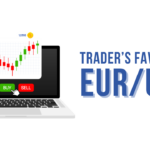Introduction
Currency trading, also known as Forex or FX trading, is the act of buying and selling currencies in the foreign exchange market. It is the largest and most liquid market in the world, with a daily trading volume exceeding $6 trillion. Currency trading is crucial because it helps facilitate international trade and investment, as well as providing opportunities for speculative trading.
Understanding Forex Markets
The foreign exchange (Forex) market is where currencies are traded. It operates 24 hours a day, five days a week, and includes central banks, commercial banks, hedge funds, corporations, and individual traders.
Major currency pairs in the Forex market include:
- EUR/USD (Euro/US Dollar)
- USD/JPY (US Dollar/Japanese Yen)
- GBP/USD (British Pound/US Dollar)
- AUD/USD (Australian Dollar/US Dollar)
These pairs are highly liquid and are the most traded in the market.
How Currency Trading Works
Currency trading always involves two currencies, known as a currency pair. The first currency in the pair is the base currency, and the second is the quote currency. When you trade a currency pair, you are essentially buying one currency while selling the other.
For example, in the EUR/USD pair, if you believe the euro will strengthen against the dollar, you would buy euros and sell dollars. If you think the euro will weaken, you would do the opposite.
Types of Currency Traders
Currency traders can be classified into different categories based on their trading styles:
- Day Traders: They open and close trades within the same day, aiming to profit from short-term price fluctuations.
- Swing Traders: These traders hold positions for several days or weeks, attempting to profit from medium-term price movements.
- Long-Term Investors: These traders hold positions for months or even years, focusing on the long-term trends of currency pairs.
Why Trade Currencies?
Trading currencies offers several advantages:
- High Liquidity: The Forex market is the most liquid market globally, meaning that traders can buy and sell currencies easily without significant price changes.
- Accessibility: Forex trading is accessible to both large institutions and individual traders, thanks to low entry barriers and online trading platforms.
- 24-Hour Market: Unlike stock markets, Forex operates around the clock, providing opportunities to trade at any time.
Factors Influencing Currency Prices
Currency prices fluctuate based on several factors, including:
- Economic Indicators: GDP growth, inflation, unemployment rates, and interest rates directly affect currency values.
- Political Stability: Countries with stable governments and strong economies usually have stronger currencies.
- Market Sentiment: The overall mood of traders and investors, whether optimistic (bullish) or pessimistic (bearish), can sway currency prices.
Risks Involved in Currency Trading
Currency trading comes with its share of risks:
- Market Volatility: Exchange rates can change rapidly, leading to potential losses for traders who aren’t prepared.
- Leverage Risks: While leverage allows traders to control large positions with a small amount of capital, it can also amplify losses if the market moves against them.
How to Get Started with Currency Trading
Getting started in currency trading involves a few key steps:
- Select a Currency Pair: Beginners should start with major currency pairs like EUR/USD or USD/JPY because they are more stable and liquid.
- Open a Trading Account : Click here for a user-friendly trading platform, low fees, and educational resources.
- Practice with a Demo Account: On Demo Accounts you can practice trading with virtual money before risking real capital, Open Demo
Trading Strategies for Currency Markets
Successful currency trading requires well-thought-out strategies. Two popular approaches are:
- Fundamental Analysis: Involves analyzing a country’s economic data and central bank policies to predict currency movements.
- Technical Analysis: Uses charts and technical indicators to forecast future price movements based on historical price trends.
Additionally, implementing a risk management strategy, such as setting stop-loss orders, is essential to limit potential losses.
Leverage in Currency Trading
Leverage allows traders to control larger positions with a smaller amount of capital. For example, with 100:1 leverage, a trader can control $100,000 worth of currency with just $1,000. While leverage can increase profits, it also magnifies losses, making it a high-risk tool.
Popular Currency Pairs to Trade
The Forex market offers a variety of currency pairs to trade, grouped into three categories:
- Major Pairs: Include the most traded currencies in the world, such as EUR/USD and GBP/USD.
- Minor Pairs: Currencies from smaller but still important economies, such as AUD/JPY and EUR/GBP.
- Exotic Pairs: Comprise a major currency and a currency from an emerging market, such as USD/TRY (US Dollar/Turkish Lira).
Economic Reports in Currency Trading
Economic reports play a vital role in Forex trading as they provide insights into a country’s economic health. Reports like Non-Farm Payrolls (NFP), Consumer Price Index (CPI), and Interest Rate Decisions by central banks often lead to significant market movements.
Traders use these reports to anticipate potential price changes and adjust their positions accordingly.
Best Practices for Successful Currency Trading
To succeed in currency trading, consider these best practices:
Avoid Emotional Trading: Stick to your trading strategy and avoid making impulsive decisions based on short-term market fluctuations.
Manage Risk: Use stop-loss orders to protect your capital and prevent significant losses.
Stay Informed: Keep up with the latest news and economic reports that could affect the currency markets.




2 Comments
Kevin Martin
It has survived not only five centuries, but also the leap into electronic typesetting simply fee text aunchanged. It was popularised in the sheets containing lorem ipsum is simply free text.
Sarah Albert
Mauris non dignissim purus, ac commodo diam. Donec sit amet lacinia nulla. Aliquam quis purus in justo pulvinar tempor. Aliquam tellus nulla, sollicitudin at euismod.